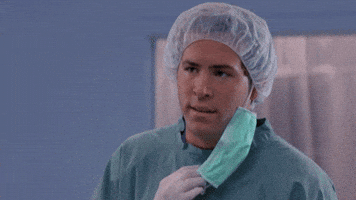- Joined
- Jul 6, 2004
- Messages
- 1,977
- Reaction score
- 563
We have our urologists place the hydrogel and fiducials, they have been doing it for many years and have done a great job. Recently have had some issues. Urologist and rep came down to talk to me couple weeks ago after one placement on a patient that was a very good SBRT candidate with IPSS of 4 when I spoke with him. they were concerned the hydrogel went subcapsular into the prostate bc they met a lot of resistance but werent certain, when they looked with ultrasound they ultimately didn’t feel like it did. This is their procedure note:
“Operative Findings:
Pre-op cipro. Ultrasound showed stool-filled rectum; stool manually disimpacted. 6cc of 1% lidocaine plain were injected at the skin
and mid-depth. Next, ultrasound was used to place 4 separate fiducial markers, 2 on each side of the prostate with care to aim for good distance between the markers. Then, SpaceOar was injected in standard fashion in the appropriate
plane posterior to prostate and anterior to rectum. Saline test was performed which confirmed appropriate plane but did favor the right aspect of this plane. Therefore the SpaceOar was instilled more vigorously to start to encourage even
spread. With instillation of SpaceOar it became evident that the SpaceOar was spreading evenly laterally but was favoring the prostatic apex. Therefore decision made to stop after 4cc of SpaceOar instilled so as to not put undue pressure on urethra and to prevent anterior spread of SpaceOar.”
Had patient come for sim and spoke with him. He has had more frequency and hesitance with urination. A couple times he tried to pee and nothing came out then he had to go again - has only happened twice in 2 weeks. His IPSS has gone from 4 to 11 now w frequency a 5 and incomplete emptying a 2 - these were all 0. Nocturia is a 1. TBH the gel looks ok on CT. He has an MRI scheduled tomorrow.
How worried are you by the IPSS change in light of the hydrogel placement issue. Not sure if maybe the MRI will tell me about the positioning better. Maybe it is subcapsular or it’s just a really tight space now with pressure on the urethra. Would you worry about moving forward with sbrt and transition to 28/44(?) fraction. He is unfav int risk on ADT.
“Operative Findings:
Pre-op cipro. Ultrasound showed stool-filled rectum; stool manually disimpacted. 6cc of 1% lidocaine plain were injected at the skin
and mid-depth. Next, ultrasound was used to place 4 separate fiducial markers, 2 on each side of the prostate with care to aim for good distance between the markers. Then, SpaceOar was injected in standard fashion in the appropriate
plane posterior to prostate and anterior to rectum. Saline test was performed which confirmed appropriate plane but did favor the right aspect of this plane. Therefore the SpaceOar was instilled more vigorously to start to encourage even
spread. With instillation of SpaceOar it became evident that the SpaceOar was spreading evenly laterally but was favoring the prostatic apex. Therefore decision made to stop after 4cc of SpaceOar instilled so as to not put undue pressure on urethra and to prevent anterior spread of SpaceOar.”
Had patient come for sim and spoke with him. He has had more frequency and hesitance with urination. A couple times he tried to pee and nothing came out then he had to go again - has only happened twice in 2 weeks. His IPSS has gone from 4 to 11 now w frequency a 5 and incomplete emptying a 2 - these were all 0. Nocturia is a 1. TBH the gel looks ok on CT. He has an MRI scheduled tomorrow.
How worried are you by the IPSS change in light of the hydrogel placement issue. Not sure if maybe the MRI will tell me about the positioning better. Maybe it is subcapsular or it’s just a really tight space now with pressure on the urethra. Would you worry about moving forward with sbrt and transition to 28/44(?) fraction. He is unfav int risk on ADT.
Last edited:


